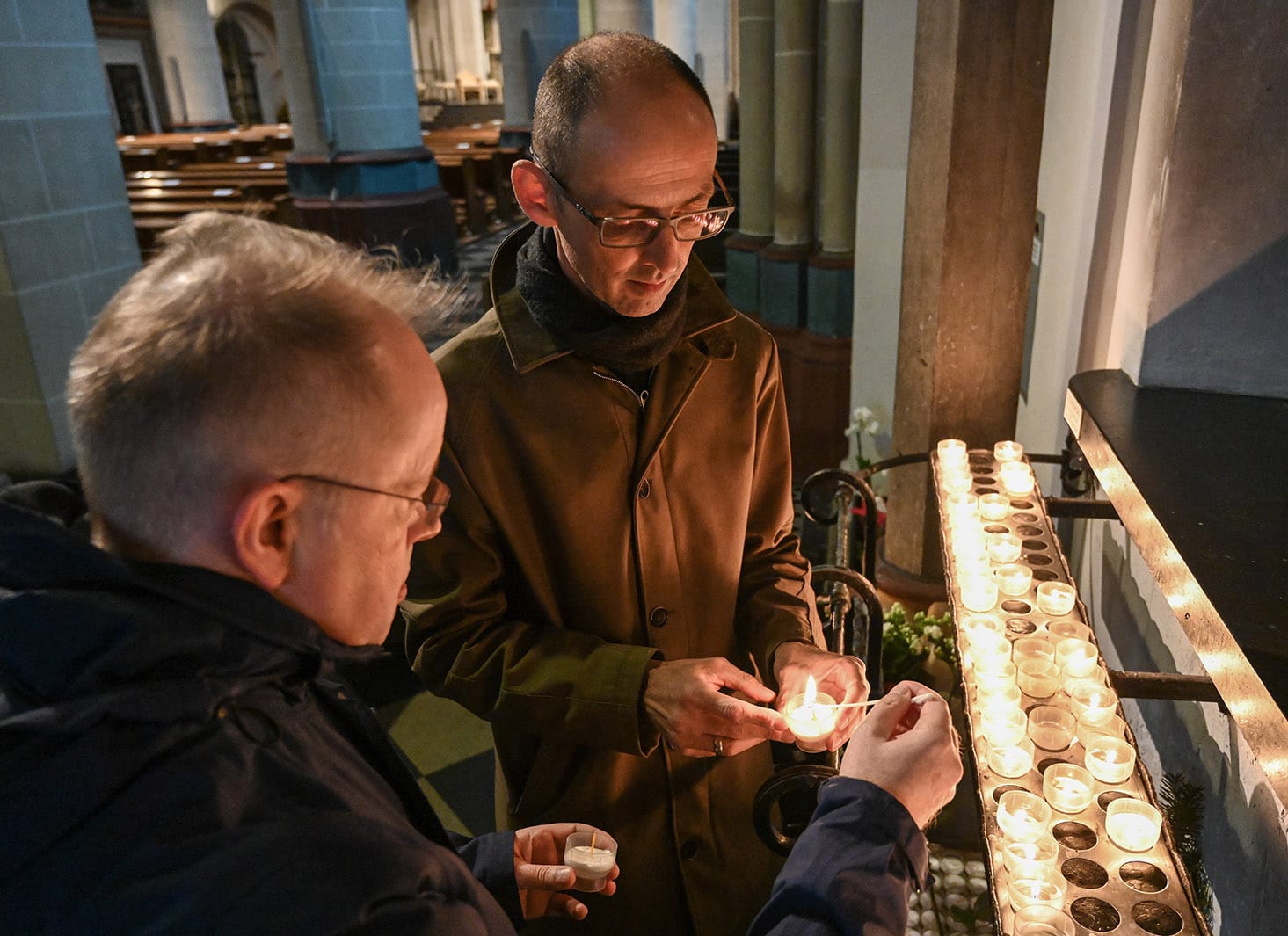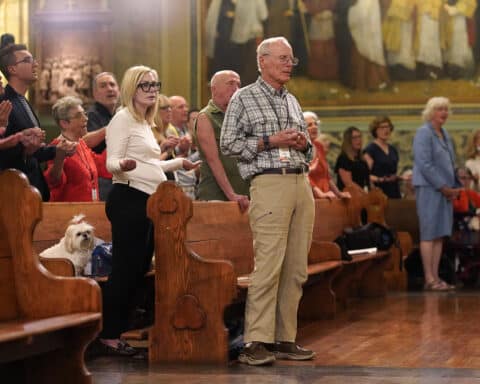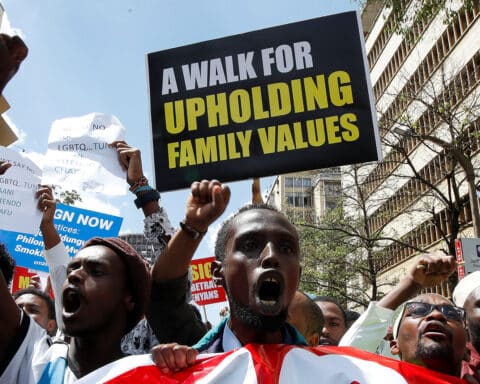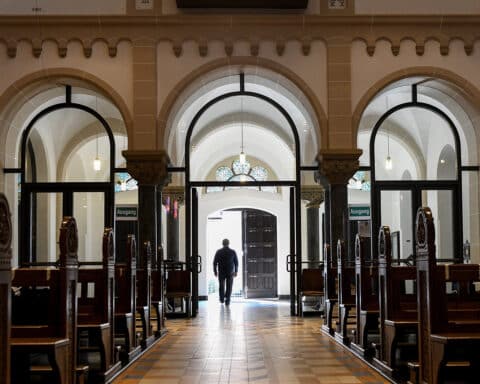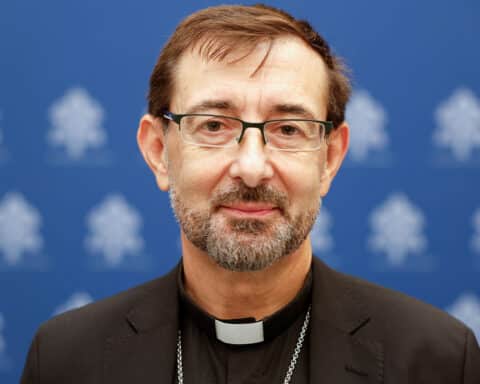In the recent unveiling of Fiducia supplicans, the Holy See’s latest doctrinal document, the Church finds itself at the crossroads of doctrine and pastoral care. This 5,000-word declaration, released on Dec. 18 by the Dicastery for the Doctrine of the Faith under the guidance of its new prefect, Cardinal Victor Fernandez, and with the approval of Pope Francis, marks a subtle yet significant shift in the Church’s pastoral approach to persons in irregular relationships, including those in same-sex unions.
No change to Church teaching
Despite what some headlines pronounced when the document was released, this declaration does not change Church teaching. While the declaration speaks of “the possibility of blessing couples in irregular situations and same-sex couples,” it also states that “the Church does not have the power to impart blessings on unions of persons of the same sex” (emphasis added). Furthermore, at its outset, the document firmly reiterates the Church’s unchanged and unchangeable stance on marriage and sexual morality. It reaffirms marriage as the “exclusive, stable, and indissoluble union between a man and a woman, naturally open to the generation of children.” And it reiterates Catholic teaching that “sexual relations find their natural, proper, and fully human meaning” only within the confines of marriage.
Moreover, the document states that same-sex unions may not be solemnized according to liturgical rites. In this regard, the new teaching, which has been presented as definitive, does not go as far as some proponents of same-sex marriage have advocated. These are all good things, based in the perennial truths of Christ and his Church.
Sources of comfort, not confusion
There are other important truths found in the document: Blessings bring us closer to God; they offer the opportunity for the one being blessed to increase one’s faith in God; a person who asks for a blessing “shows himself to be in need of God’s saving presence in his life.” There is an inherent humility that comes with the genuine request for a blessing — one that admits imperfection and the need for God’s grace — and this humility, by all means, should be encouraged and embraced.
Blessings can be both a source of comfort and a source of healing. What they should not be, however, is a source of confusion. Nor should they be actions that may mislead the people of God in any way. This is why the document states that blessings offered to persons in irregular situations cannot occur during civil ceremonies or be performed “with any clothing, gestures, or words that are proper to a wedding.” Rather, the declaration instructs, they must be done “spontaneously” and, we might — in hope — add, with a desire for conversion.
“People who come spontaneously to ask for a blessing show by this request their sincere openness to transcendence, the confidence of their hearts that they do not trust in their own strength alone, their need for God, and their desire to break out of the narrow confines of this world, enclosed in its limitations,” the document says (No. 21).
Challenges in pastoral practice
Despite the document’s careful wording, however, it is almost certain that pastoral practice will differ greatly depending on the understanding and desires of particular priests and pastors. Even in the short time since its publication, Fiducia supplicans has prompted diverse responses from various U.S. bishops, and its interpretation and implementation in different regions will undoubtedly vary. How will priests discern when to offer these blessings? How will they navigate the fine line between pastoral care and doctrinal adherence without causing scandal or confusion? These are not easy questions, reflecting the broader challenges the Church faces in ministering in today’s contemporary world. And, in paragraph 41, the document makes it clear that answers to any further questions such as these will not be forthcoming.
The unhappy reality, too, is that there are those who, seeking to advance agendas, will ask for a blessing within the context of an invalid wedding or other ceremony. And there will be those who, also seeking to advance agendas, will be glad to consent. This type of misappropriation of Fiducia supplicans — the use of it as a tool to validate irregular situations in the minds of both those who are blessed and those who are aware of the blessing — will be a significant challenge for the Church, especially as an often malformed but very eager secular media continues to follow the issue.
The Church should be pastoral and charitable to all, but such charity must not come at the expense of boldly and lovingly sharing the truth of Christ — the truth that, the Gospel tells us, will bring us to eternal life. The proper way to resolve irregular situations is not and cannot be to imply that they are regular; the proper way to resolve irregular situations is to call those currently in them to holiness, so that they may leave their irregular situations behind on their pilgrimage to the life that is to come.
Varying global responses
Bishop Czeslaw Kozon of Copenhagen addressed potential confusion stemming from the document directly, saying, “The problem is thus not the content of the statement, but the way it will be received and interpreted.”
He added: “If the doctrinal ministry’s statement is to have its proper effect and not create confusion and polarize, it is important that it is read and understood in the right sense, which consists partly in confirming traditional Catholic teaching and morals, partly in helping people on their way to see the truth and the meaning in this, but also, as long as they are on the way, to accompany and support them in this process by presence and care.”
This will be an important task for Catholic media in the coming months and years.
As bishops’ conferences around the world begin to weigh in on the document — some positively, some with concern — it’s clear that the reception of the declaration within the Church around the globe is uneven. “Certain aspects of this letter are causing anxiety and even confusion among the Christians, and in general the people of God,” wrote the Catholic bishops of Kenya in a lengthy statement attempting to clarify the declaration. The Church must be careful to guard against any cracks in the foundation of the global synodality that was so well established in Rome in October.
A responsibility to souls
The release of Fiducia supplicans marks a significant moment in the life of the Church. Discussions over the document’s language and intention will be passionate and may often devolve into vitriolic exchange. But we must not allow our unity to be injured. We must keep in mind the souls that are at risk should the document be misinterpreted and misused, and we must work to guard against such confusion with the same heart of charity that is at the source of every blessing.

